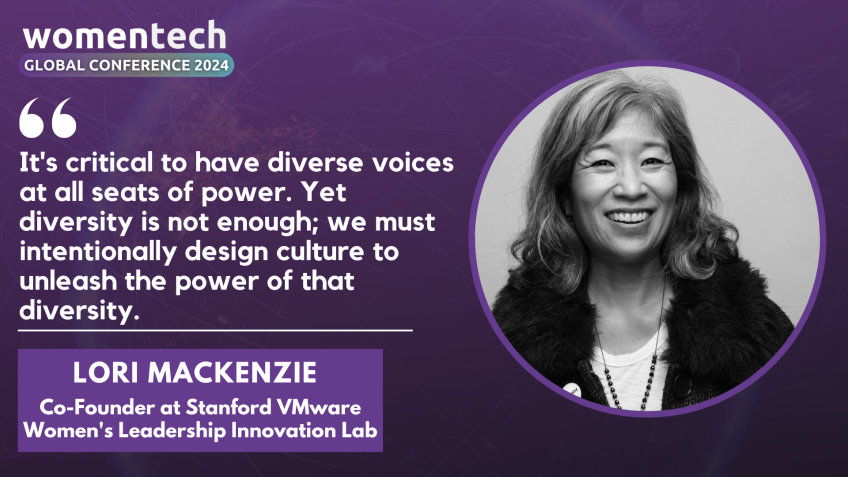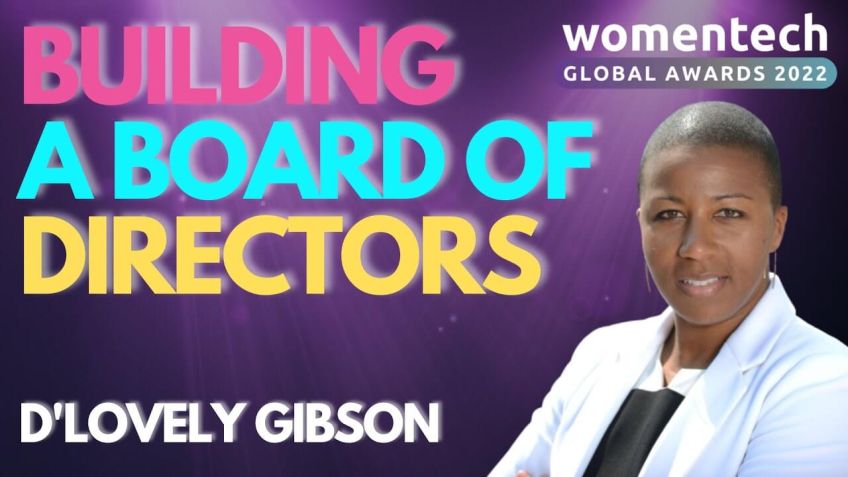How to land your next corporate board
Naomi Kent
Managing DirectorHow To Land Your Next Corporate Board Role: Insights From Felix Managing Director, Naomi Kent
Hello and welcome. I am Naomi Kent, Managing Director at Felix, a human capital business and partners in talent and organizational excellence. Today, I'll be shedding light on a topic that I'm passionate about—how to earn a seat at the corporate board table. I’ll dive into my personal experiences, dismantle standard myths, and offer valuable steps to help you on your journey.
The Corporate Board Narrative: A Personal Story
Looking back at my early career days in BX, a company that created biographical profiles for board members, I remember feeling nervous. Understandably so, because at the time, my knowledge about boards and what board directors did was fairly limited. Fortunately, BX turned this weakness into a strength by teaching me everything I needed to know about board dynamics.
Through my experiences, I recognized that many people lacked a clear understanding of boards and their role. This led me to my mission of guiding prospective boardroom leaders, particularly those who need a little push in the right direction.
Myth Debunking: Busting Common Misconceptions About Corporate Boards
Your perception of what a board of directors is might be distorted, dated, or even daunting, so let's clear some misconceptions:
- Stern Boardroom Images: The general assumption is that boards are stuffy and laden with discomfort, but modern boards are growing more dynamic and diverse each day, as evident in companies like McDonald's and REI.
- Necessary Executive Title: Many have the misconception that you must be a CEO to serve on a board. This isn't true, as having the right set of skills and expertise outweighs your professional title.
- Substantial Time Commitment: Serving on a board isn't as time-consuming as it seems. The time expectancy varies depending on the company and the board's needs.
- Unpaid Positions: Contrary to popular belief, most board roles are paid. While your first board position might not yield high returns, building a board career over time could lead to more lucrative opportunities.
Three Key Steps For Joining a Corporate Board
Once you have uncovered these myths, here are three recommendations to steer your board career in the right direction:
1. Identify Your Preferred Board
Start by determining which board aligns with your mission, brand, and career trajectory. Research corporations, nonprofit organizations, and even startups like Half Day Tonic or professional associations like Women Tech that align with your goals.
2. Assess Your Board Readiness
Contemplate how well your board director brand would resonate with your prospective board. Taking on a board role also requires a blend of knowledge—covering topics from governance and cybersecurity to fundraising and sponsorships—and a well-structured board network. Such networks not only aid your board career but also bolster your executive career.
3. Take Action
Finally, don’t just dream—act. Irrespective of your target board type, the key is to strategically build your network and take proactive steps. Go beyond networking and volunteering—understand your potential roles and their responsibilities, and equip yourself with the necessary expertise, like financial literacy for bigger boards.
Wrapping Up
As we conclude, it’s worth noting that the journey towards landing a board role requires awareness, strategic planning, and timely execution. More importantly, it demands the willingness to alter your perception, debunk common myths, and embrace a learning mindset. As you embark on this journey, feel free to connect with me here or reach out to me via email. I look forward to helping you make your first breakthrough in your board career.
Video Transcription
Hello. Hello and welcome everybody. Um I'm Naomi Kent. I'm the managing director at Felix. Uh We're a human capital business and partners in talent and organizational excellence. I specifically work with C SUITE executives who are looking to join boards. Now today, my program is very short.
We've got 10 minutes to tell you about how to land your next corporate board. It's not a lot of time, but I am gonna give you a few tips and tricks on how to get there. But let's first start off with a short story. So I'm gonna tell you about my own story. It's 2002 and I'm sitting in an interview with a company called BX. It's one of my first companies that I joined uh straight out of college. Now, I was nervous for one reason, one reason that was because they worked with boards of directors and they built biographical profiles on board members. And while they were explaining to me what the company did, I really had no idea what a board was or what a board director did. And so part of my nervousness was really just not knowing anything about this space. And so as I thought about it, as I went through my career, I was lucky enough to work for a company that actually taught me everything I needed to know about boards. But when I looked around, I noticed that there are not a lot of people that know much about boards or really understand the space very well.
So I'm extremely passionate about inspiring the next generation of boardroom leaders and helping those of you who might have perhaps some, some ideas about what a board is, but you may not be sure. So let's start out, let's talk a little bit about what my myth was and I'm sure what some of the myth is for you all today. So let's take a look at the picture we've got in front of us here. So we've got a very stern group of individuals, they're all wearing suits, they look like they're very uncomfortable in those chairs. This is sort of, I guess the opinion that a lot of people have of what a board of directors is. And, you know, this may be something from years ago. This may be something that's a bit outdated. What we tend to see more are boards that are more dynamic today. They're more uh diverse, they might look like this, for example. So this is the board of directors of mcdonald's now, I don't think board meetings all look like this, but this is actually taken from one of their, uh, one of their corporate websites. But as you can see, people are well dressed, a lot of these people around the room, um, our senior level executives and they've run large businesses so they are capable of running a board such as, uh, as mcdonald's. But as you can see, it's a little lighter.
And also here you can see this is rei, I mean, look at these guys, right? They look fun. They look like they're about to go on a hike. Ok. So again, we've got a really, again, we gotta think that boards are not these scary places and they're not just, you know, full of CEO S and people that, um, uh, perhaps don't look and feel like we do. Um, many boards have many different types of cultures, just like companies. So another myth, this is something else that I assumed when I first got into the business and wasn't really aware that you can only be a CEO to serve on a board. Well, even on a corporate board, that is not true. So, again, it's all about having the right skills and the right expertise. We'll talk about that in a moment, but you definitely don't have to be a CEO. A lot of people say, oh, you need lots of time. It's almost like a job. No, it's not. Again, depending on the board, depending on the company, you really, the time is, um, dependent on the business you need to ask those questions. And then finally, a lot of people say to me, oh, I don't want to be on a board. They're all unpaid. That is not true either. Of course, building a board career over time will, is, is the right way to make more money.
Maybe the first board you get on might be a nonprofit organization or it might be an advisory board of a start up. It really depends. but generally that is a myth. Uh, boards are paid. So now that I kind of broke down a couple of myths in a very short space of time, looking at the types of people. It can be a lot of fun. It can be rewarding some of the reasons why I've joined boards over the years is because it's built an amazing network. I get to meet great people and I get to learn new skills. So these are some of the reasons you should be thinking about serving on a corporate board as well. Now, let's go through the three secrets. What are the three things that you need to do to get onto a board? And I encourage you all to make notes or take some pictures here as we go along as we will be moving fast. So, first of all, which board is right for you, it's really important to have a gradual, um uh you know, a, a gradual career plan for your board career, not just saying, well, I want to be on a huge board. How do you get there?
This is something we can certainly discuss a little more and more depth. Um But for example, I want to call out some companies here. These are corporations, I'm sure you've heard of some of them. Um ge actually a sponsor of the Women Tech Global Conference here today. Um You know, a huge multinational, global public company. We've also got credit unions. They're organizations that you probably see in your neighborhood. And you've got Publix, this is an employee shareholder owned organization. So this is, these are three very different organizations.
And then I just want to call out the um half day tonic which is uh an iced tea company. I sit on their board a wonderful start up. You've probably not heard of them. That's the beauty of corporate boards. You have tiny start ups all the way through to bri brands. And then I also want to call out Women Tech. They have their own board. So there are lots of nonprofit organizations or not for profit organizations that might deal with networks conferences. They might be charities, they might be professional associations. Go do your research and find out what board is right for you and find something that fits with your cause, fits with your mission and fits with your brand. Secret number two. Are you even board ready? You need to ask yourself that. So the first thing that you'll want to do is really understand what is the brand, right? What is my brand? And what is the brand of a board director on the board that I want to join? So if we wanna join women tech or we wanna join the board of GE, we're going to have to perhaps look at our brand a little bit differently. Your brand is linked in your brand is your board bio, your brand is your boarded resume. All of these things need to line up. And most importantly, you need to have a strong board narrative. That's your elevator pitch. Who am I as a board director? What do I bring to a board?
Secondly, you need to obviously have knowledge, you need to know about the board role that you're going to be applying for or you're thinking about applying for. What are the roles and responsibilities you need to know about governance. You need to know a little bit about a lot of things on boards today and that's what's definitely changed. Cybersecurity is impacting companies. Human capital is definitely a topic of conversation at board in board meetings. You need to know a little bit about these topics. If you're joining a nonprofit organization, you need to understand about fundraising and you need to understand about sponsorships. So make sure that you know all the information that you need in order to be successful. So the first part I just mentioned is brand, the second part is knowledge.
The third part most importantly, start building your network and start building your network strategically with the right people. And you may say, well, who are the right people? It all goes back to what type of board do you want to join? If you want to join the board of a nonprofit organization, start volunteering, start doing a little bit of work for that organization. If you want to join the board of a corporation, start getting to know some of those board members or even their executives. That's a great way to start working your way into some of those, some of those platforms and boards are very elite. So you may need to start building your network in a different area or a different industry. And just for all of you here today, whether you want to join a board or not, building your network is absolutely essential. Anyway. So this is something that will not just work for you for boards, but it will also work for you for your executive career. And just finally wrap this whole thing up, take action. I see a lot of people coming to me saying I haven't been able to get onto a board, but they haven't been doing the right things. So go through my steps, take action. That is the most important thing. And I know we're running out of time here. So I'm gonna say, what do boards look for to get your cameras? Out. You might want to take a picture quickly here. These are some of the things that boards look for today. Noses in fingers out.
This is a term that boards use when they're describing that you need to be an advisor and not an executive advise, but don't do and things like financial literacy. Absolutely important. That needs to be something that you have P and L responsibility for some of those bigger boards.
So if you don't have P and L responsibility right now, that's something to work on in your executive career. Ok, we're running out of time here. But I've really enjoyed speaking to you all. I can see some questions coming up in the chat. For those of you, please connect with me on linkedin. That's my linkedin uh link at the bottom there. It's just Naomi Kent, all one word. And if you want to search for me, Naomi Kent boards and there's my email, I'd be more than happy to speak to anyone who's seriously considering getting onto boards. And again, as I said, I'm passionate about inspiring the next generation of boardroom leaders. And if there's anyone here today that I can continue to speak to, I would be happy to do so. Now. Um uh I think that's it. Um I would like to thank you all for joining and I look forward to connecting with you all in the future.



